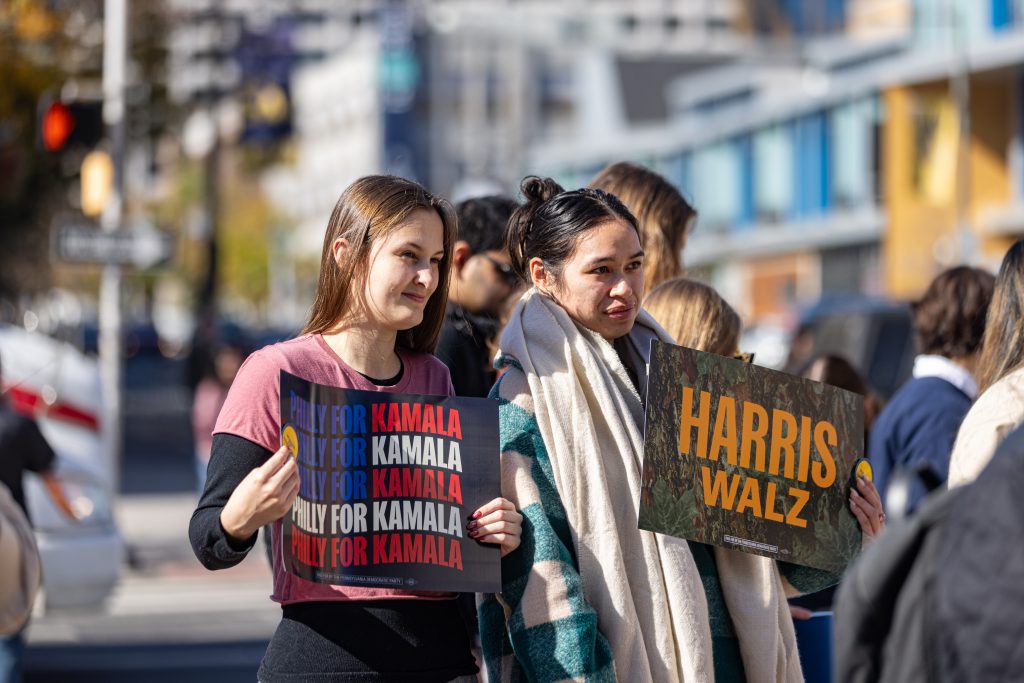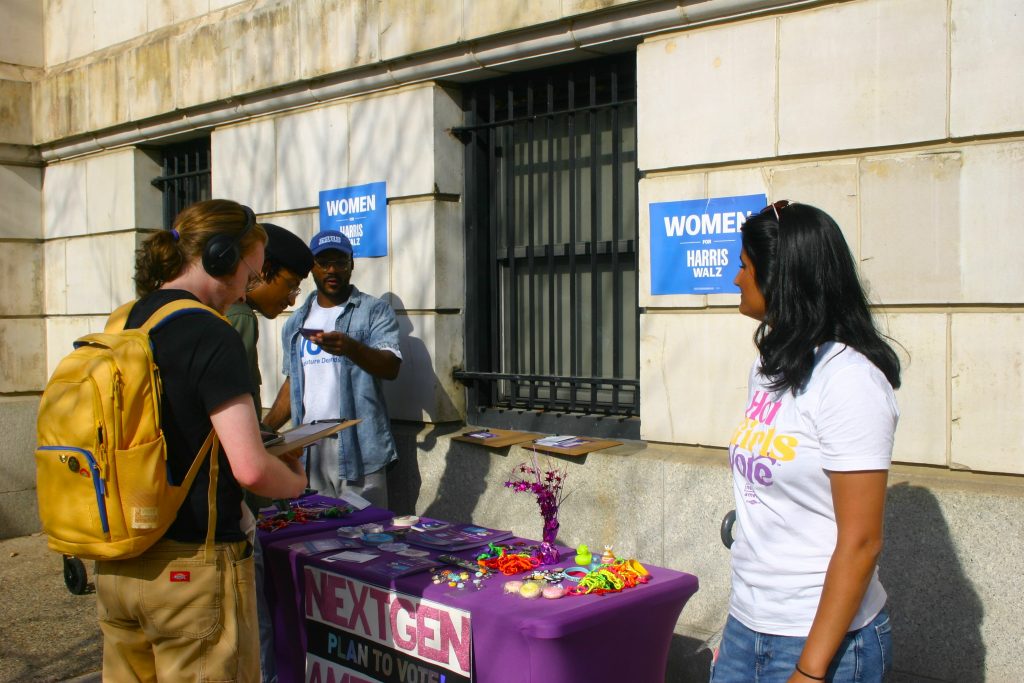
“For every action, there is an equal and opposite reaction.” Newton’s third law of motion describes how forces operate in balance and opposition. This law can also be used as a metaphor for the political divide unfolding within Generation Z. The older segment of Gen Z, the activists who fought alongside reproductive rights, the Black Lives Matter movement and climate change, pushed hard for progressive values. Now, the younger segment of Gen Z has started to push back against their older peers, embracing more traditional, conservative values.
This inter-generational struggle is more about the reaction to politics than a disconnection. While old Gen Z’s reaction to politics is through a lens of progressive values, young Gen Z reacts by embracing more traditional values. In 2022, the political pendulum swung to the left for Generation Z. Now, it seems to be swinging back.
The oldest members of Gen Z are around 28 years old in 2025, meaning they graduated high school in 2014 and college in 2018—before the upheaval of the COVID-19 pandemic. In contrast, Gen Z members born around 2001 graduated high school and entered college in 2020, right as the pandemic disrupted education, social life and the economy. For those born after 2001, many spent their formative years attending school through Zoom or entered adulthood amid lockdowns. This difference marks a stark divide in formative experiences.
Old Gen Z’s coming of age saw the rise of anti-Trump resistance movements and protests like the Women’s March, climate strikes, Black Lives Matter and the March for Our Lives. Fast forward to 2020 through 2025, young Gen Z graduated high school through a livestream, and started college on Zoom. When the COVID-19 restrictions were lifted, they were thrust into a campus environment that lost all semblance of pre-pandemic times.

The 2024 political climate played a significant role as well. In 2024, a Blue Rose Research analysis found a 20-point gender gap in Democratic support between men and women ages 25 and younger. That is twice as large as the gap observed among voters aged 40 to 70. According to Yale’s Youth Poll, voters between the ages of 22 and 29 favored Kamala Harris by a margin of 6.4 points. Comparatively, voters between the ages of 18 and 21 favored Donald Trump by a margin of 11.7 points.
Despite the stark differences between Donald Trump and Kamala Harris during the 2024 election, many young Gen Z voted in response to the effects of the Biden administration’s COVID-19 policies. For young Gen Z members who entered high school or college in 2020, the pandemic disrupted education, delayed personal, formative milestones and intensified mental health challenges. Old Gen Z came of age, politically, during Trump’s first term, experiencing it as older teenagers. For young Gen Z, they were still in middle school.
Young Gen Z may not remember the impacts of the first Trump presidency as well as their older peers. However, it was young Gen Z who came of age during the height of extreme online political reaction. From 2016 to today, platforms like TikTok, X and Instagram are saturated with emotionally charged reactions towards America’s conservative body politic writ large. Old Gen Z, having become politically “woke” under Trump’s first term, flooded these platforms with doom-and-gloom perspectives and performative outrage towards conservatives. For young Gen Z, these reactions felt overblown, alienating or just plain performative to garner online attention.
This online flood of extreme rhetoric, the growing influence of cancel culture and hyper-progressive, identity-based politics failed to connect with young Gen Z voters. It is not that young Gen Z stepped back from politics, they stepped to the right, drawn towards a community that offered order, traditional values and an escape from the chaotic progressive movements.
Personally, I underwent this political conversion.
I believed in the causes. I believed it was the Democratic Party that would change America for the better. But when people were being canceled over a dumb tweet from their past, when politicians broke their own COVID restrictions while keeping the rest of us locked down and when tolerance was given only to those who repeated the approved narrative, I changed sides.
The idea of a rising Democratic electorate, where future generations of young, progressive-leaning voters will deliver electoral victories for the Democratic Party, will disappear should the Democrats continue down this path. If they do not change course, not only will they lose more elections, but also future generations as well.


